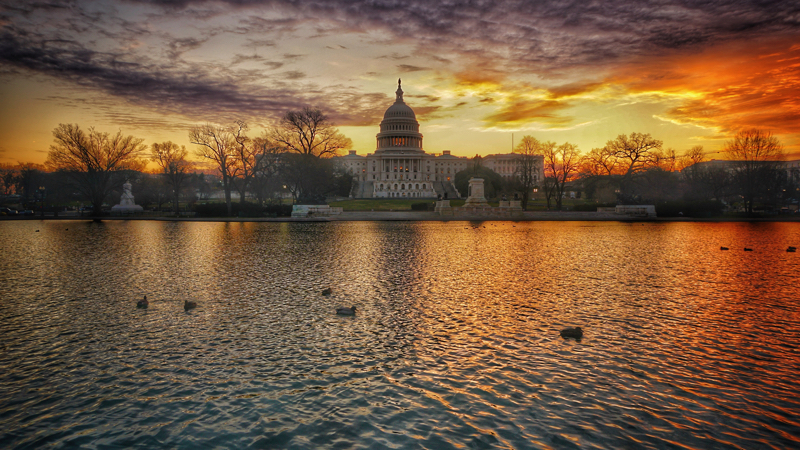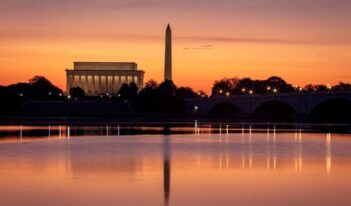
The Regulatory Review highlights the top regulatory stories written by our staff in 2019.
The Regulatory Review is pleased to highlight the top essays from 2019 authored by our staff contributors. These essays, which qualify for this list based on the number of page views, are arranged below in alphabetical order by last name of author.
How FDA Drug Review Contributed to the Opioid Epidemic
January 24, 2019 | Benjamin Barsky
Recently, several health law scholars have argued that the U.S. Food and Drug Administration (FDA) is partly responsible for the nationwide opioid epidemic. They claim that FDA’s current regulatory oversight process for high-risk drugs like opioids fails to take into account sufficient information about their safety and efficacy.
The Potential Consequences of the Smoke-Free Public Housing Rule
June 12, 2019 | Benjamin A. Barsky
The U.S. Department of Housing and Urban Development issued a regulation in 2016 that requires public housing authorities (PHAs) to penalize tenants if they smoke in or near PHA-owned establishments. Legal scholars argue that the heavy penalties associated with violations of the rule may cause serious risks of their own.
The Need for Vaccine Regulation Overhaul
August 15, 2019 | Benjamin A. Barsky
To make compensation more accessible, Efthimios Parasidis proposes that policy-makers amend the “outdated” National Childhood Vaccine Injury Act to expand protections for vaccinated patients across the United States.
Reforming VA’s Response to Military Sexual Trauma
August 29, 2019 | Benjamin A. Barsky
The prevalence of military sexual trauma leads Yale Law School’s Michael Wishnie to call for veterans’ law reform in a recent paper.
Supreme Court Examines Liquor Retail Regulations
June 5, 2019 | Nicholas Bellos
Nearly 85 years after Prohibition, the U.S. Supreme Court this term will revisit the meaning of the 21st Amendment, the provision that ended the United States’ constitutional ban on alcohol, by deciding whether Tennessee’s state residency requirements for liquor retailers fall within its powers to regulate the sale of alcohol.
Improving Patient Safety for Inpatient Psychiatric Care
August 22, 2019 | Sophie Beutel
Patient safety and quality of care initiatives lag behind in inpatient psychiatric facilities. Researchers argue that psychiatric facilities must adopt “trauma-informed care”—an evidence-based treatment framework that focuses on understanding and addressing the effects of patients’ trauma.
Scrapping Electric Car Tax Credits
May 21, 2019 | Scott Carson
The U.S. Congress established a tax credit system in 2009 to encourage consumers to switch to electric cars. But President Donald J. Trump’s 2020 budget proposal, released in March, aims to scrap these tax credits.
Antitrust Law and the Future of the NCAA’s Amateurism Rules
February 21, 2019 | Bobby Chen
Under National Collegiate Athletic Association (NCAA) “amateurism” rules, college teams are only allowed to compensate their athletes with scholarships that cover the costs of attending school. According to one economist, the NCAA should now no longer be allowed to argue that amateurism is procompetitive after a Supreme Court decision handed down last year.
Are Mutual Funds Bad for U.S. Consumers?
April 24, 2019 | Bobby Chen
Although many have touted the social benefits of mutual funds—such as their accessibility to investors and diversified risk—critics including antitrust scholars Einer Elhauge, Herbert Hovenkamp, and Fiona Scott Morton argue that the power of mutual fund companies may be bad for consumers.
Combatting Deregulation with Regulatory Horcruxes
April 18, 2019 | Joseph DeQuarto
Sarah Light of the University of Pennsylvania argues that premature “regulatory exits” or retreats from regulation are worrisome since the problems that regulations are intended to address are left unsolved. In order to safeguard against these exits, Light suggests that regulatory programs can be insulated from being rolled back by fragmenting regulatory authority, creating “horcruxes”
Strengthening Eco-Labeling Regulation
January 30, 2019 | Joseph DeQuarto
James Nehf, a law professor at Indiana University, argues in a recent paper that environmentally friendly marketing, commonly referred to as “eco-labeling,” is often fraught with vague, confusing, and sometimes blatantly untrue claims.
More Regulation Needed to Combat Risks From Cosmetics
June 13, 2019 | Marissa Fritz
Eye shadow and other face makeup sold at a nationwide beauty supply retailer has tested positive for asbestos, the U.S. Food and Drug Administration (FDA) announced last week. In a recent paper, a legal scholar argues that FDA under-regulates cosmetics compared to other products that the agency oversees.
Human Milk Markets Need Regulation
August 20, 2019 | Marissa Fritz
In a recent article Mathilde Cohen of the University of Connecticut School of Law urges the U.S. Food and Drug Administration to regulate donor milk as a drug, tissue, or food depending on what type of organization distributes the milk
The Case for Eating Bugs
February 7, 2019 | Kelly Funderburk
In a recent article, Marie Boyd of the University of South Carolina School of Law argues that although eating insects is not widely accepted in the United States, the practice should, in fact, be embraced for its potential to mitigate food insecurities worldwide.
Regulating Cryptocurrency
July 31, 2019 | Kelly Funderburk
Timothy G. Massad says that intermediaries in the crypto- sector have emerged to fill roles beyond those of validation and publicity. But the problem is that these intermediaries, unlike banks, are not subject to any regulations barring fraud or misuse of funds.
Amusement Park Accommodations for the Disabled
January 31, 2019 | Grace Gale
In a recent paper, William Moorer, a law student at the University of Mississippi School of Law, argues that even though manufacturer ride restrictions are legitimate safety requirements for the disabled, amusement park owners should find safe ways to increase rider accessibility.
Shame on You!
September 5, 2019 | Grace Gale
Sharon Yadin, a law professor at the Peres Academic Center in Israel, proposes shaming as a strategy to achieve regulatory goals more quickly and cheaply.
Is Regulation Good for Business?
December 9, 2019 | Allie Gottlieb
Speaking at the University of Pennsylvania Law School in November, Richard Cordray, the first Director of the Consumer Financial Protection Bureau, argued that a certain amount of regulation is needed for businesses to prosper in today’s society.
Problems in Federal Wild Horse Management
January 1, 2019 | Edward Hale
Researchers project that, if left unmanaged, wild horse populations will begin to triple every six years. Without major changes, the western United States could follow in the footsteps of Australia, where over 400,000 wild horses roam the Outback.
Got Soy Beverage?
March 20, 2019 | Edward Hale
About one-third of all U.S. households buy some form of plant-based “milk.” But Scott Gottlieb, the Commissioner of the U.S. Food and Drug Administration (FDA), has reportedly expressed interest in restricting the use of the term “milk” by enforcing federal rules aimed at combatting misleading labels.
The Uncertain Regulatory Future of Marijuana- Based Oil
May 16, 2019 | Edward Hale
Some market analysts project that the cannabidiol, or CBD, market could reach up to $22 billion by 2022. The future of CBD, however, is not all green. The current regulatory landscape for CBD products is anything but certain.
Bringing Sunscreen into the 21st Century
May 27, 2019 | Edward Hale
In early 2019, the U.S. Food and Drug Administration proposed changes to update the regulation of over-the- counter sunscreen in an effort the agency says is needed “to make sure that sunscreens are safe and effective.”
Can the President Modify a Monument?
September 4, 2019 | Edward Hale
In a recent article, a law professor argues that the President does not have the authority to reduce a national monument after it is created without congressional approval.
Judge Suspends Rules Expanding Exemptions to the Contraceptive Mandate
January 28, 2019 | Simone Hussussian
In a recent ruling, a federal judge issued a nationwide ban on the enforcement of two rules that would expand the ability for business entities to opt out of the provisions of the Patient Protection and Affordable Care Act that require employers to offer insurance plans that include contraceptive coverage.
Will an All-Payer System Lower Health Care Costs?
May 14, 2019 | Simone Hussussian
There may be another way to control the prices of health care without moving to a system of single-payer health insurance: an all-payer system. In an all-payer system, all health care payers—the government, private insurers, and self-insured employer plans—pay similar prices.
Will the Affordable Care Act Die by Non-Enforcement?
June 20, 2019 | Simone Hussussian
Is the President allowed to sabotage through executive action a law passed by Congress and signed by an earlier President? This is the central question in a recently filed lawsuit against the Trump Administration that alleges the Administration has intentionally acted to undermine the signature health insurance reform legislation signed by President Barack Obama.
Fixing the Family Glitch
August 19, 2019 | Simone Hussussian
The Patient Protection and Affordable Care Act (ACA) contains a glitch that prevents as many as six million Americans from obtaining affordable healthcare coverage through ACA marketplace subsidies because one member of the household is also able to receive “affordable” health insurance from that person’s employer.
Fixing the Shortfall in Highway Infrastructure Funding
August 21, 2019 | Jared Kadich
Taxes on gasoline and diesel fuel fund the majority of the Highway Trust Fund, supporting federal infrastructure spending on roads and bridges. But this funding formula is broken, and Highway Trust Fund revenue is falling behind spending needs.
Diving Into the Benefits of the Clean Water Act
February 27, 2019 | Joanna Kamhi
Although many U.S. rivers and streams do not meet federal pollution standards, David A. Keiser and Joseph S. Shapiro write that the Clean Water Act has curbed water pollution overall. That said, Keiser and Shapiro argue that the law has had relatively low net benefits.
Guidance Documents and the Regulation of Genetically Modified Foods
Aug 7, 2019 | Joanna Kamhi
Two law professors argue that the “guidance documents” issued by the U.S. Food and Drug Administration are too informal to effectively regulate the production of genetically modified foods.
The New Face of Title IX Due Process
September 2, 2019 | Daniel Kees
In November 2018, the U.S. Department of Education proposed a rule that would change how schools respond to sexual harassment and assault under Title IX. The proposed rule would take the novel step of articulating a definition for Title IX sexual harassment, which the Education Department considers consistent with Supreme Court case law.
We Need to Talk about ICOs
September 26, 2019 | Daniel Kees
Cryptocurrency experts argue current U.S. securities laws lack the precise technological definitions necessary for effective initial coin offerings regulation. They contend that a more robust disclosure framework is needed to reduce the ambiguity surrounding tokens and make financial markets more transparent and efficient.
Reforming Regulation to Promote Medical Use of Psychedelic Drugs
January 21, 2019 | Sarah Madigan
Psychedelic drugs may alleviate mental illness and substance abuse patients’ symptoms, according to a paper by Mason Marks of Yale Law School. Marks advocates for a variety of regulatory changes to stimulate research on psychedelics.
The Rise of Electric Scooter Regulations
January 3, 2019 | Kate Mancuso
Electric scooter sharing is now available worldwide, and scooter companies plan to continue expanding to new cities. Given the risks associated with this new transportation technology, smart regulatory action by city officials may be the key to bridging the interests between companies, cities, riders, and pedestrians
Robots Are People Too…Maybe
January 22, 2019 | Kate Mancuso
Instead of creating a new legal status for robots, Professor Ignacio Cofone of McGill University Faculty of Law recommends in a recent paper that lawmakers classify robots and other artificial intelligence entities on a “continuum between tools and people.”
The Black Box of College Admissions
April 25, 2019 | Kate Mancuso
The college admissions process is a largely unregulated black box, and schools provide little transparency about how they decide who receives an acceptance letter.
Does Presidential Ideology Influence OIRA Review?
August 28, 2019 | Kate Mancuso
Political scientists Simon F. Haeder and Susan Webb Yackee discovered that the Office of Information and Regulatory Affairs’ review had significant policy influence during the Obama and Bush Administrations.
Would a National Popular Vote Make Every Vote Count?
October 16, 2019 | Kate Mancuso
As a result of the Electoral College system, two of the last three U.S. presidents took office after losing the national popular vote. Reformers concerned with this outcome advocate for the National Popular Vote bill, which would ensure the candidate who receives the most popular votes in a presidential election is the winner.
Deep Fake News
March 21, 2019 | Samuel Moran
In a recent paper, law professors Robert Chesney and Danielle Citron explain that a web of emerging technologies can, in the wrong hands, facilitate the fabrication of fake but convincing “video or audio making it appear that someone said or did something” they did not say or do.
The Regulatory Battle Over Safe Injection Sites
October 8, 2019 | Larissa Morgan
In response to the devastating consequences of opioid addiction, a Pennsylvania nonprofit corporation, Safehouse, plans to open the first safe injection site in the nation. A Philadelphia federal judge has given Safehouse the green light to open the safe injection site after dismissing a challenge from the U.S. government under the Controlled Substances Act.
Putting the Brakes on Crude Oil Train Regulation
January 10, 2019 | Mark Nakahara
Despite federal legislation demanding improved rail safety, safety experts charge that a recent policy change adopted by the Trump Administration will leave the public exposed to the dangers of rail accidents.
High-Speed Rail Gets On Track
March 6, 2019 | Mark Nakahara
Major changes may be coming for Americans who travel by train. The Federal Railroad Administration issued a final rule late last year updating passenger train safety standards. In particular, this rule establishes new standards for trains capable of traveling up to 220 miles per hour.
The Grounding of the Boeing 737 MAX
March 19, 2019 | Mark Nakahara
Regulators around the world fear that the 737 MAX 8 and 9 aircraft or its control software may have serious safety flaws. Dozens of aviation agencies and airlines worldwide have temporarily grounded these planes pending further investigations into their airworthiness.
Curbing the Spotted Lanternfly
September 25, 2019 | Mark Nakahara
The spotted lanternfly first appeared in Berks County, Pennsylvania in 2014, and since then it has spread through most of southeastern Pennsylvania. Nearby states have also confirmed lanternfly sightings. Agencies in these states have recognized that lanternflies threaten crops and have taken steps to keep them from spreading.
How Sessions Reshaped the U.S. Immigration Court System
February 14, 2019 | Domenic Powell
What will be the legacy of Attorney General Jeff Sessions as the nation’s top law enforcement official? Of all the ways Sessions may have left his mark on the office, his most enduring legacy as a policymaker may be found in the changes he made to the nation’s immigration court system.
Sex Workers Fight for Safe Conditions After Being Taken Offline
February 26, 2019 | Domenic Powell
The impact of the Allow States and Victims to Fight Online Sex Trafficking Act on the sex industry is still unclear. But it appears to have breathed new life into sex-worker activism, both online and in the streets.
Regulations Coming Soon for Lab-Grown Meat
March 5, 2019 | Erin Quick
After a joint public meeting last fall on the topic of meat made in the lab, the U.S. Food and Drug Administration (FDA) and the U.S. Department of Agriculture released a statement announcing that they will be working together to regulate lab- grown meat as the agencies adapt to new technology that challenges existing regulatory schemes.
Police Departments Adopt Automated DNA Testing
June 18, 2019 | Erin Quick
Routine DNA testing upon arrest will have the benefit of increasing the number of profiles in the Combined DNA Index System—and therefore of increasing the chance that the database will return a match when searched—but increasing the number of searches also increases the chances of innocent people being implicated in a crime by their DNA.
Stealing from the Poor and Giving to the Rich in the Workplace
January 23, 2019 | Leigh Anne Schriever
A recent report by Philip Mattera and Adam Shah demonstrates that all kinds of employers violate federal laws and regulations governing wage standards. Mattera and Shah point out that large companies are often the culprits, despite the fact that they have legal teams and plenty of resources.
Labor Department Sides with the Gig Economy
July 25, 2019 | Leigh Anne Schriever
The U.S. Department of Labor’s conclusion that gig economy workers are independent contractors may well also mean that the Department will do little to enforce other employment protections against gig economy companies
This page is part of a four-part series, entitled The 2019 Regulatory Year in Review.



